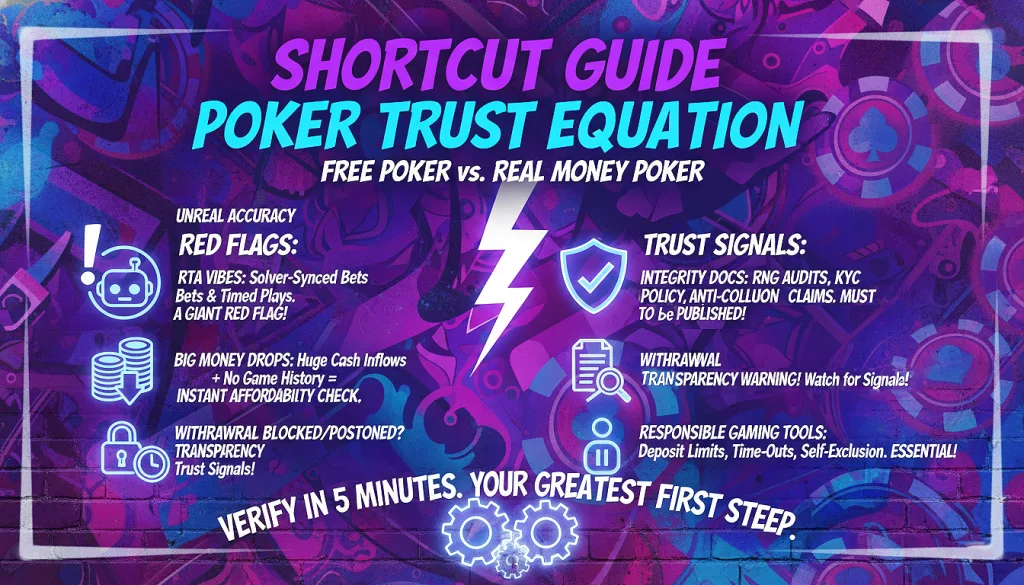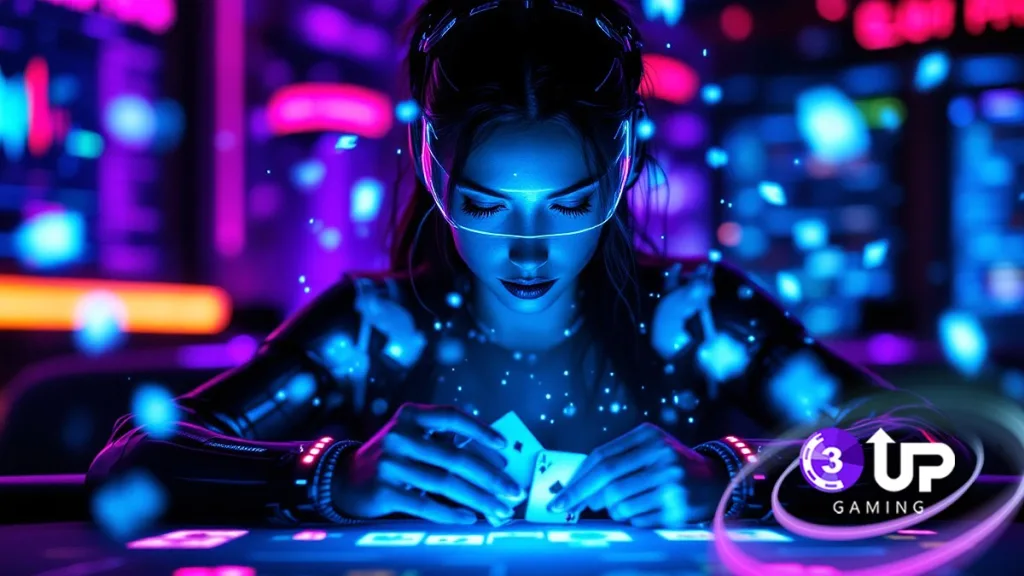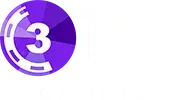Free vs. Real-Money Internet Poker Games — What’s the Difference? The fundamental difference has ceased to be monetary but structural, which is characterized by a different Nash Equilibrium. Free-play meta is unpredictable and non-optimal; the GTO thinking that was supported by AI and other sophisticated fraud-detecting tools prevails in real-money games.
The major part of the players believes that the distinction between free and real money poker is simply, money. Nice thought, but we ought to reverse the thought.
Introduction: The New Reality of Poker
The actual breakthrough was in 2017 with the Libratus Event; when an AI not only defeated the leading professionals, it analyzed the strategic essence of the game. That was the time when poker became dead as a psychological duel of vibes and a new scientific field was born. Free poker will never train you to accept this new reality of solvers and security measures and platform-level technology.
Now imagine this, you are in the turn with a monster flush draw. In free-play? You shove without blinking. Playing in a real-money pot of $100 of your own? All at once your heart is beating more than the betting. That indecision, that psychological stakes pressure is the first actual division between the two worlds.
This guide will fill that gap and will set you ready to the technical, psychological, and financial realities of the modern online poker.
So what is the difference between free and real-money poker?
Free poker is an instruction in the mechanics of the game without gambling and real-money poker is an instruction in the game with the psychological pressure, complexity of the strategies, and a high level of security.
Understanding the Two Realities of Online Poker

The current online poker marketplace is not a mere division of free poker and real money; it is a complete strategic divide. On the one hand, there are low-risk environments that are constructed to be onboarded and experimented. The opposite is a high-integrity battlefield that is formed on the basis of the AI strategy, regulatory protection, and significant investment in the infrastructure of fair play.
This is important as these differences in online poker have made the game not to be dominated by intuition as it was before. It is data model-driven, solver-driven, affordability-driven and platform-driven fraud detection. The first step to playing internet poker games with confidence is to understand the two realities.
What You’ll Learn: How to Transcend Free-Play Habits to Real-Money Success
- The discriminatory Trust Equation between safe and risky platforms.
- The reason behind free-play habits failure against real-money opponents.
- The way to use the AI-based tools to speed up your learning process.
- How to make your first profitable deposit using real money.
- To start with, the deconstruction of the world you are familiar with: the free-play ecosystem.
What are Free Online Poker Games?
Free poker is not a practice mode, it is the highest point of the onboarding funnel. Platforms develop these tables as more relaxed settings where gamers can familiarize themselves with the gameplay, explore different distances, and explore new game modes with no stress of betting money.
However, you are also getting introduced to the UX and reward loops and engagement systems of the platform; the initial steps in a process that ultimately results in authenticated accounts, security checks, and real stakes.
Although it is a safe training environment where rules and mechanics are concerned, its main aim is to guide you to the next level.
The platforms operate by the freemium behavioral model: changing rewards and risk-free play that are created to develop habit loops. This maximizes the number of users through reduced activation energy to enter the platform.
The Real Money Online Poker Games and What It is all about
Poker is immediately a sandbox as soon as real money is involved, and it becomes a controlled ecosystem, which we will refer to as the Trust Equation. Real-money poker is not free poker but spicier and operators are required to be licensed in order to ensure fairness, protect the vulnerable and prevent fraud in real time. This includes the mandatory KYC checks, affordability tests, and high compliance with the Duty of Care by the regulators including the UKGC.
Why does this matter? The fact that after going into real money poker online you are not merely testing your skill, but are placing your trust into the site to provide personal details, deposits, withdrawals and integrity of the games. Safe online poker websites spend money on anti-collusion, RTA detection, provably fair RNG audits and transparency that creates the boundary between legitimate ecosystems and anarchy of unregulated play.

This ecosystem should be controlled by the platform showing its reliability to the player. The rules are enforced by regulators, the RNG is checked by independent auditors, and the behavioral biometrics offenders are detected, and all these elements safeguard players and make the responsibilities of the platform align with the safety of users.
Differences between Free Poker and Real Money Poker
Free poker has a lot more to it than what is present at first and the difference between free and real money poker is a fundamental element of the game.
Training for the doormat in a gym is one issue, but stepping into the ring and feeling the impact is a different ball game. What we see is that the cash flow may have changed but also the players’ way of thinking, the strategic culture, and the tech base that supports it all in the background. We will break down the three elements of this present separation.
The Trust Equation: Security, Fairness and Your Capital
You are part of a system which is going to be what puts up a defense for you once you enter a real money table. This isn’t optional. Licensed platforms have very strict KYC, affordability, and fraud detection measures. If a player puts in over 500 pounds in 24 hours they must be evaluated for affordability and action taken where needed. That is the scale of the Duty of Care.
However, we see that trust is a result beyond that of regulation. Real money sites have complex tools which identify rings of colluders, bot networks, and RTA type play patterns.
Free poker does not need to concern itself with all this. None of the money will be an incentive to cheat. In the case you are carrying actual cash to the table, the security architecture of the platform will be more important than the welcome bonus.
The Strategic Chasm | Why Real Money Is a Different Species of Poker
Poker teaches you to play free: poker teaches you to play real. The instant the financial risk comes into the picture, players are beginning to fold hands that they would jam in the heartbeat during free-play. This is Psychological Stakes Pressure, and it redefines all decisions.
The shift causes the Prospect Theory:
Losses are more psychologically important than gains. This leads to risk-aversion in marginal spots and non-optimal plays, which solvers, by assuming perfect economic rationality, will not have.
The real-money opponents also act in more predictable and hence exploitable ways. They do not consider random hero calls, but ranges. They secure equity, balance bluffs and fold hands which free-play players punts with. You are now playing against players who have learnt the lines of solvers and how to take advantage of loose tendencies.
And here is the punch line: The success in free poker has little to do with success in the real-money conditions.
Free tables are a reward of aggression. Real tables are good for discipline, bankroll management and time analysis.
The AI Revolution | The Brains behind the Modern Game
After Libratus overcame the human-pro beatdown in 2017, GTO (Game Theory Optimal) has become the default prism through which decisions are assessed. The legit pros are all running solvers or tools which operate at solver-level smarts. It is all about the meta now. The real money ecosystem goes so far as to provide you with embedded coaches such as PokerCraft which allows you to replay, analyze frequencies and find leaks.
But there’s a shadow side:
The same technology is used in Real-Time Assistance (RTA); solver-like tools players can use unlawfully in real-money games. It is the greatest menace to game integrity nowadays. The platforms are now in a complete Arms Race, with behavior models and decision-tree anomaly detection to detect unfair precision.
Free poker does not have to deal with this. There are no stakes = there is no incentive = there is no policing.
In 3UP Gaming, we want to place AI tools in an ethical context; we create interest in off-table training and skill development. A clean ecosystem maintains the game.
The process of moving to free play to real-money poker is a slow development, not necessarily in terms of money. It is a basis of economic stability and long-term prosperity based on systematic skill learning:
- cognitive (learning rules),
- associative (pattern recognition),
- and autonomous (GTO/exploitative execution) levels.
Leveling Up: Moving out of Free Play to Real Money Tables

Step 1: Scan out your targets with AI tools
Free poker is a great way to learn the rules but for real money play we highly recommend that you practice first. We have practice based RTA tools which will teach you solver reason and also give you the chance to play the role of a virtual coach to GTO strategies which in turn will not cost you a dime. Also you will see fast results as you play. Your hand history is analyzed and your brain will start to see the patterns in the game.
Step 2: Put platform integrity first, bonuses second
Consider the quality of the platform before you put in your money. We look at licenses (for instance UKGC, MGA), see that they have in place game integrity measures, responsible gambling features, and anti fraud systems. The safe and fair playing field is what you should be after over that tempting welcome bonus.
What Kind of Poker Game Is yours?
Your perfect format is based on your objectives. When you need to know how to play, to play with your hands or to relax after a hard day, free poker is the best place to be. No loss of money, no gain of stress.
However, when you want to develop actual skills, the ones that stand the test of time and pay off in the long run, follow your path in micro-stakes real-money poker that that development occurs. There is just no discipline, no psychology, no strategic depth in play-money pools.
You have come to pass the time… or to win? It is up to you to determine your game.
Your decision is in line with the Dunning-Kruger Effect. Free play has the tendency of inflating the belief in shallow skills, real money causes a valley of despair that makes one re-calibrate self-assessment. Consequently, they devote themselves to a more grounded skill development.
Key Takeaways
- Trust First: Regulations, security, and fair play not only in terms of large prizes do they define real money poker.
- Strategy Changes: In the case of free play, strategy breaks down under financial stress; in reality, the money is at stake and rivals play out very much the same.
- The Modern Meta: Solvers and analysis tools will be what the future holds for AI. You must study them to play ethically.
- Going Smart: Practice RTA, play in, start at micro stakes.
- Know Your Goal: Free play is to have fun, real money to grow.
First out of the gate in the growth of your gaming experience is to make informed decisions. With the info put forth in this article you’ll be able to determine which tools and which strategies will best put you ahead. Are you ready to take your skills to the next level with us at 3UP Gaming and see how our innovative products may be the perfect partner in your quest for the best performance?
We look forward to your input!
Did you come across any analysis which challenged your views on risk, security, or strategy in online settings?
Comment on this post and participate!
The information which you present will broaden the discussion, and we will put that out to other players which in turn will give them a better look at the present day poker scene.
Explore 3UP Gaming solutions:
- white-label poker platform,
- poker AI & training tools,
- secure admin dashboards,
- anti-fraud & RTA protection,
- wallets multi-currency & crypto-integration.
See also:
- The Libratus Breakthrough: In 2017 in the Science report we see that they put forth the CFR algorithm which changed how poker is played.
- Regulatory Frameworks: In the UK Gambling Commission’s framework of player protection which also includes the Remote Gambling and Software Technical Standards.
- Behavioral Economics: Kahneman and Tversky present the cognitive biases which are a result of financial interests in the Prospect Theory.
- Game Theory & Nash Equilibrium: The foundational concepts here are required to interpret what solvers and modern GTO play put out.
Community Question:

What is the most important when selecting a real-money poker platform?
☑️ High-level security and anti-fraud.
☑️ Equitable games, great player base, strong reputation.
☑️ Bonuses, rakeback and environmentally-friendly UX tools.
☑️ Artificial intelligence-based feedback and inbuilt training.
The results will be in real time; and your vote can influence your future 3UP Gaming guides.
Glossary of related terms in this article:
- Nash Equilibrium: In a state of equilibrium no player has an improved option to do better by changing his strategy alone. This is the foundation of a perfect GTO (Game Theory Optimal) strategy in poker.
- Game Theory Optimal (GTO): This is a variant of poker which is based on a Nash Equilibrium, perfect and unexploitable strategy. Against an AI which is also playing GTO there is no term in the long run to defeat you, only to outperform.
- Libratus Event: In 2017 there was a stand out poker game in which the AI Libratus from Carnegie Mellon defeated the best of human players by large margin which in turn proved that GTO poker is for the machines to play and a new bar has been set for top level strategy.
- Trust Equation: A model for evaluation of a real money poker platform which is a mix of regulatory compliance, fair play (RNG audits) and fraud security.
- Freemium Behavioral Model: This is a business model that we present a free play poker which in turn attracts large user base which we then direct to paid real money games.
- KYC (Know Your Customer): This is a mandatory identity verification which licensed gaming operators do to prevent fraud, money laundering, and underage gambling in order to have a safe and legal environment.
- Duty of Care: It is a legal and ethical requirement of those who operate legal gambling sites that they see to it which their players are not at risk through use of responsible gaming tools which also includes close observation of play which in turn may spot out those that may be playing problematically.
- UKGC (UK Gambling Commission): The regulatory body which licenses and runs the gambling industry in Great Britain and is known for very high standards of player protection and fair play.
- RNG (Random Number Generator): This is a certified random algorithm for shuffling and dealing of cards which out rules out predictability and ensures fair play at the poker site.
- RTA (Real-Time Assistance): Unauthorized software providing players with GTO based advice at the time of a live hand which in turn gives that player an unfair advantage. Today’s game integrity teams are mostly into identifying and stopping RTA.
- Prospect Theory: This is a behavioral economics which describes how people make choices in risky situations. In poker what it means is that the fear of losing out on real money (loss aversion) causes players to make what is in fact non optimal choices.
- Counterfactual Regret Minimization (CFR): A series of AI algorithms that develop a strategy out of the analysis of past games’ moves, which in turn minimizes the regret in all game states in the end we see a transition to a GTO strategy.
FAQ: Free vs. Online Real Money Poker Games
- What’s the main difference between free and real-money poker?
Free poker is not the same as real-money poker in terms of the stakes, as real-money poker introduces financial risk, so the strategy is even more important and the trust in the safety of the platform is needed. - Can you win with real money in free poker games?
No, free games are for practice, in real money you will only win if you play at real money poker online. - Is it safe to play real money online poker?
At present, we have that which is available at safe online poker sites that also are open about their game integrity. - Do free poker games help to improve real poker skills?
They cover the rules, in terms of skill improvement. 3UP Gaming also offers free poker practice software and real money play. - What is the safe way to transition from free poker to real money poker?
By choosing safe sites which are of low stake to begin with and strictly managing your bankroll. - Which type of poker is best for beginners, free or paid?
Start out free to get a feel for the game, then once you’re ready graduate to micro-stakes with real money which is when you put your skills to the test. - Are some poker apps which also play for real money?
Yes, mostly all major platforms use their free play apps as a way to introduce players to their real money games. - What is the best online poker for real money?
The top real money poker sites offer strong security, fair play, and in game tools which improve your skills.

